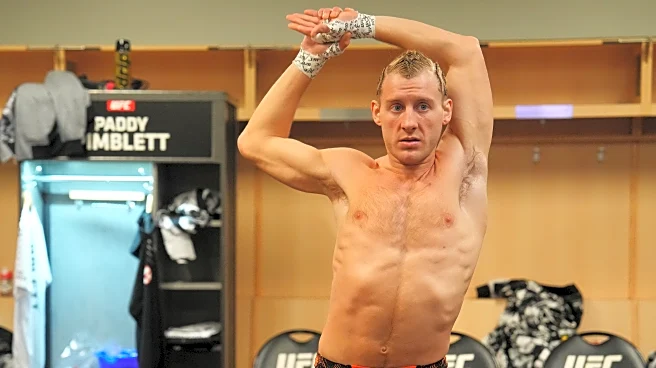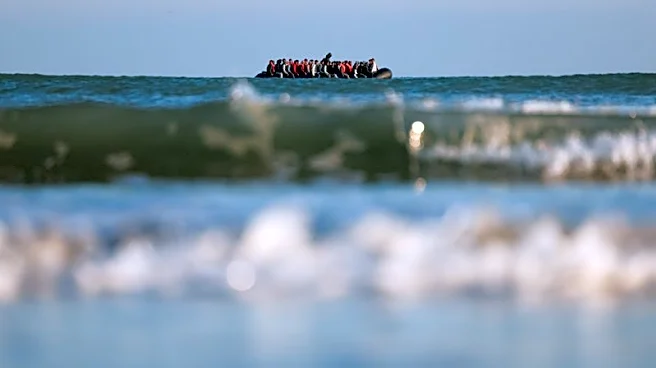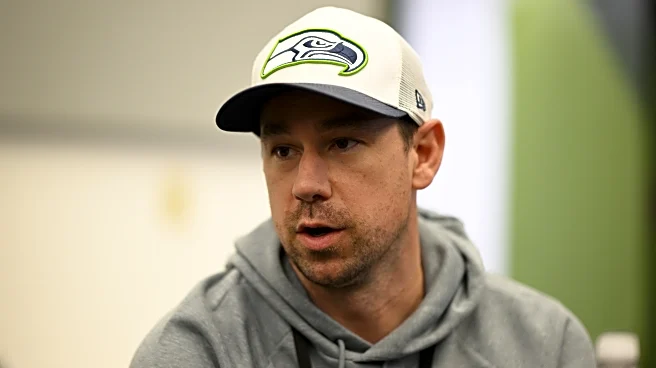What's Happening?
Sonia Raman, previously an assistant coach with the New York Liberty, has been appointed as the head coach of the Seattle Storm, marking a historic moment as she becomes the first person of Indian descent
to hold such a position in the WNBA. The announcement, reported by ESPN, follows the firing of former coach Noelle Quinn after the Storm's playoff elimination by the Las Vegas Aces. Raman's coaching career includes a successful tenure at MIT, where she led the team to the Division III NCAA Tournament twice, establishing herself as the winningest coach in the program's history. Her move to Seattle comes amid significant changes in the team, with several All-Star players set to become unrestricted free agents.
Why It's Important?
Raman's appointment is a significant milestone for diversity in sports, particularly in the WNBA, which has been striving for greater representation and inclusion. Her leadership could influence the team's dynamics and performance, especially as the Storm faces potential roster changes with key players entering free agency. This development also highlights the growing opportunities for women of diverse backgrounds in professional sports coaching roles, potentially inspiring future generations. The WNBA's decision to hire Raman reflects a broader trend towards embracing multiculturalism and expanding the league's appeal globally.
What's Next?
The Seattle Storm will likely undergo a period of transition as Raman takes the helm, with strategic decisions needed to address the impending free agency of several star players. The team's management will focus on negotiating contracts under the new collective bargaining agreement, which is expected to increase player salaries. Raman's immediate challenge will be to integrate her coaching philosophy and build a cohesive team capable of competing at the highest level. The Liberty, now without a head coach, will also be seeking a replacement, adding to the league's coaching carousel.
Beyond the Headlines
Raman's appointment could have broader implications for the representation of Indian Americans in sports leadership roles, potentially encouraging more individuals from similar backgrounds to pursue careers in coaching and management. Her success may also prompt other sports leagues to consider more diverse candidates for leadership positions, contributing to a shift in the cultural landscape of professional sports.










